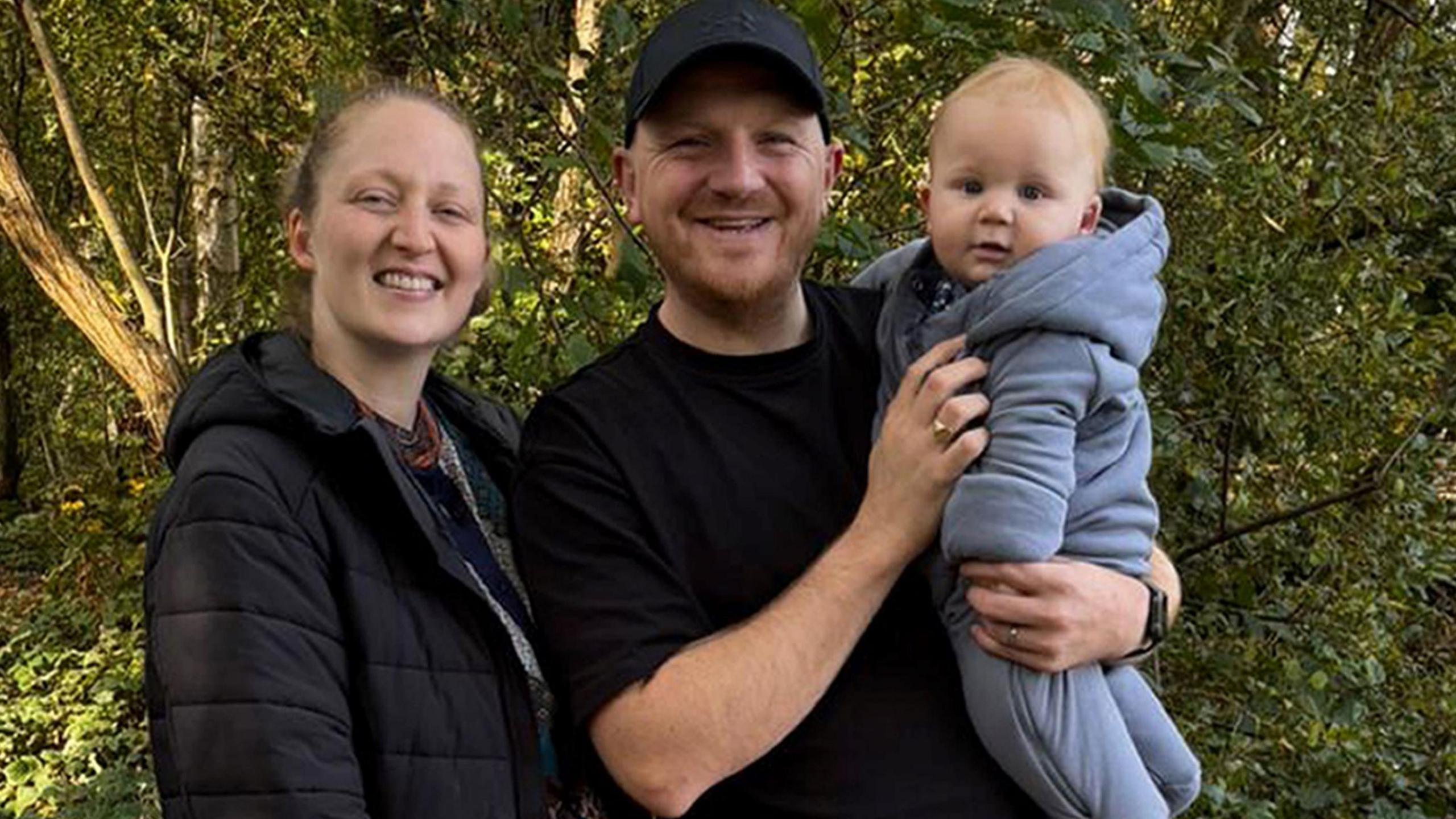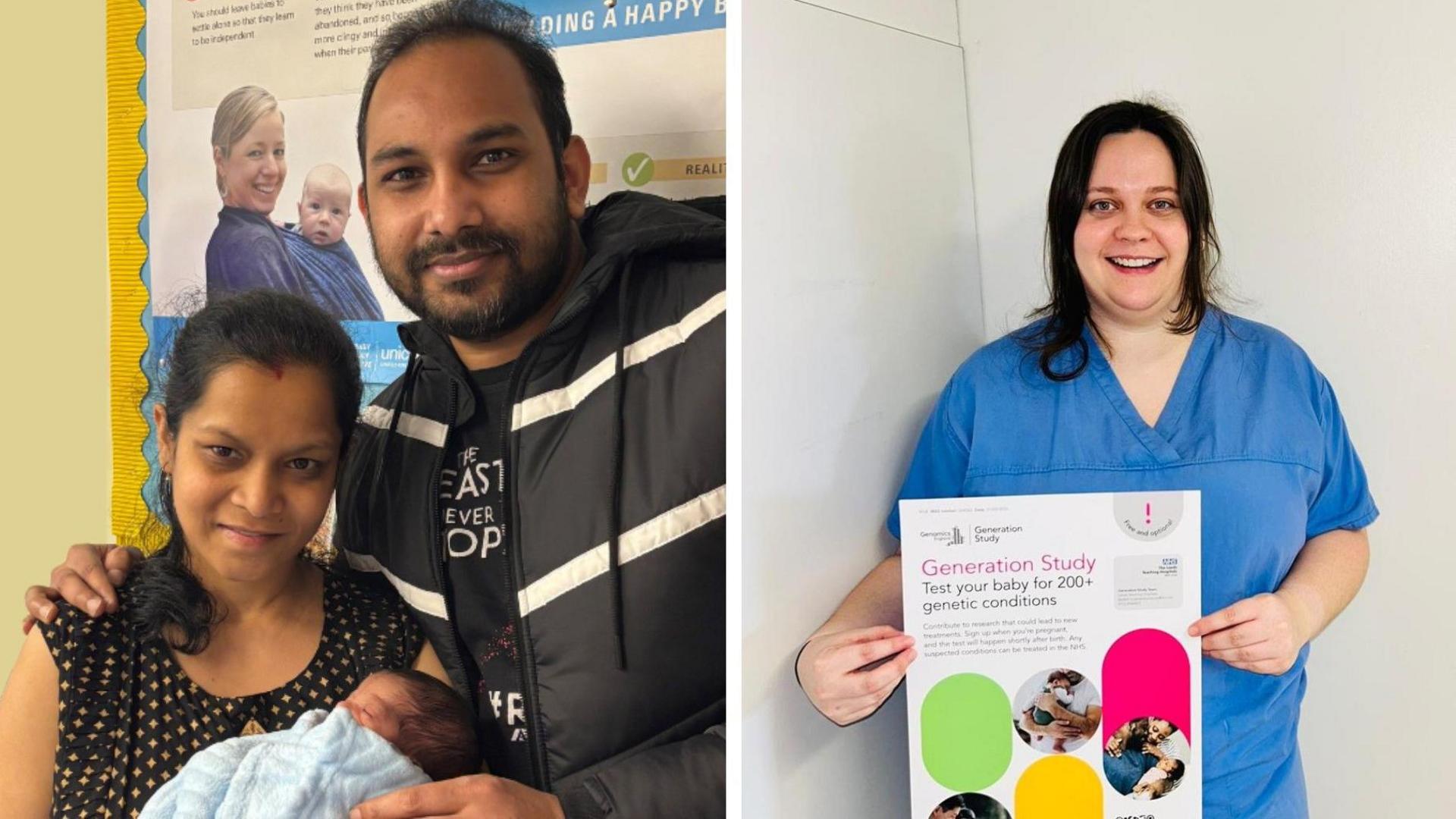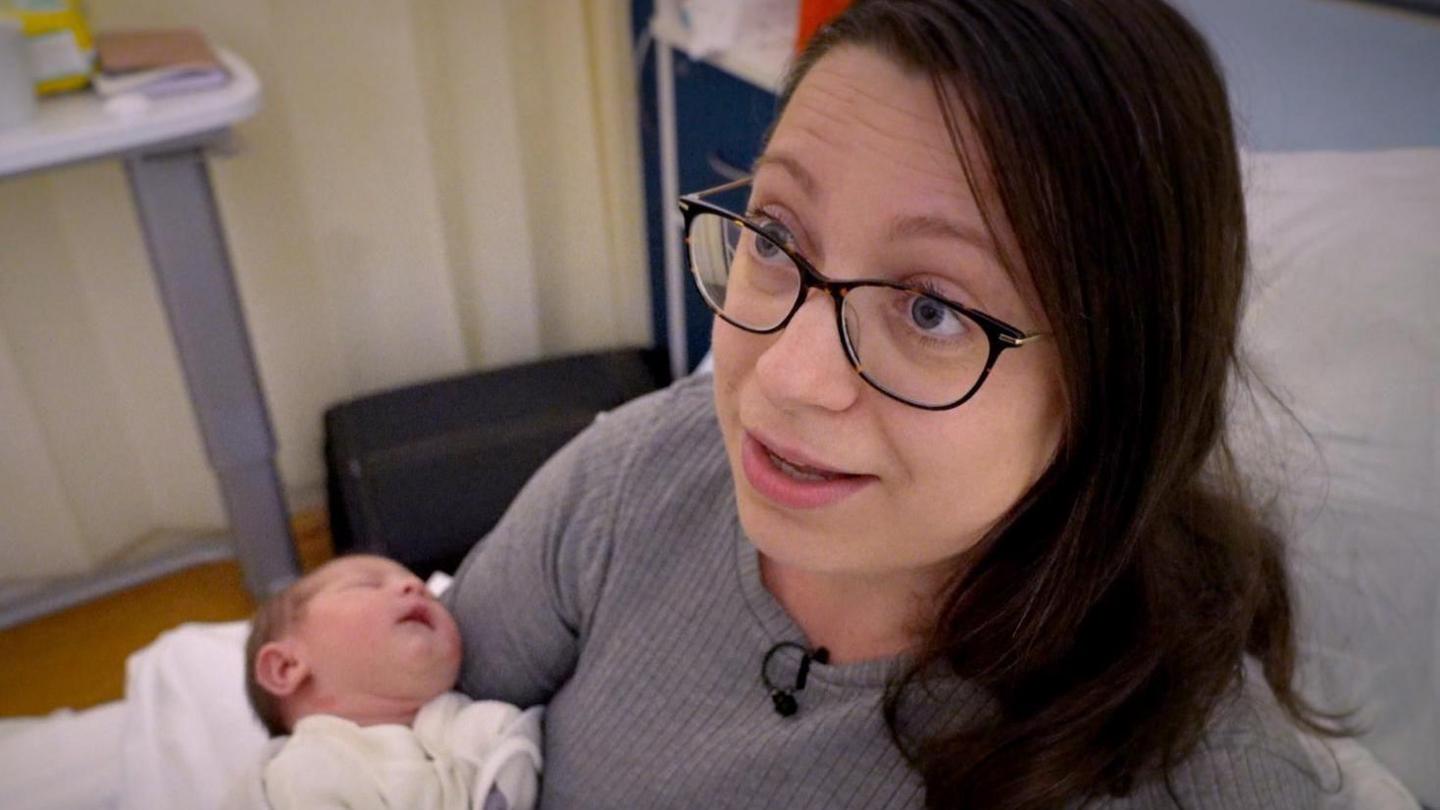Genetic testing reveals baby's unexpected cancer

Freddie's parents Vicky and Joe Underhay said they were incredibly lucky" to have caught the cancer early
- Published
A baby is expected to have his eyesight saved after a new screening tool picked up a rare eye cancer which may have otherwise gone undiagnosed.
Just four weeks after he was born at The Jessop Wing in Sheffield in April, Freddie was diagnosed with hereditary retinoblastoma, caused by a change in his RB1 gene.
The cancer was detected because he was enrolled in a "world-leading research study" which is screening 100,000 newborn babies in England for dozens of genetic conditions.
Freddie's father Joey Underhay said taking part had changed his son's life "phenomenally".
Only around 44 children are diagnosed with retinoblastoma every year in the UK and catching the cancer early is crucial to save the sight of affected children.
When there is no known family history of the disease, the cancer often goes undetected until later when the disease has progressed.
His mother Vicky said: "There were no signs that anything was wrong - he was a normal little baby, so the results came totally out of the blue."
'Extend lives'
Within days of finding the genetic abnormality, Freddie was seen at Birmingham Children's Hospital, where a a tumour was found.
He was given a combination of laser treatment and chemotherapy and his doctors are hopeful they can save his vision.
Mrs Underhay said: "They said we are incredibly lucky to have caught it this early.
"It was such an amazingly quick turnaround."
The diagnosis was a result of the family's decision to take part in the Generation Study, which sees newborn babies offered whole genome sequencing using blood samples, usually taken from the umbilical cord shortly after birth.
Dr Joe Abbott, Freddie's ophthalmologist, said the chances of protecting his eyesight had been "greatly improved" as a result of taking part.
The study's findings will help inform the government's long-term ambition to offer genomic sequencing to all newborns as part of routine care.
Experts said by detecting rare genetic conditions sooner, hundreds of children could benefit from earlier diagnosis and treatment that could help slow progression of the disease or extend their lives.
Prof Dame Sue Hill, chief scientific officer for England, said: "Freddie's amazing story highlights the strength of our world leading partnership with Genomics England, showing it is possible to identify rare genetic conditions like these earlier so children can start treatment faster meaning they have the best chance of a cure."
Get in touch
Tell us which stories we should cover in Yorkshire
Listen to highlights from South Yorkshire on BBC Sounds, catch up with the latest episode of Look North
Related topics
- Published11 January

- Published3 October 2024
